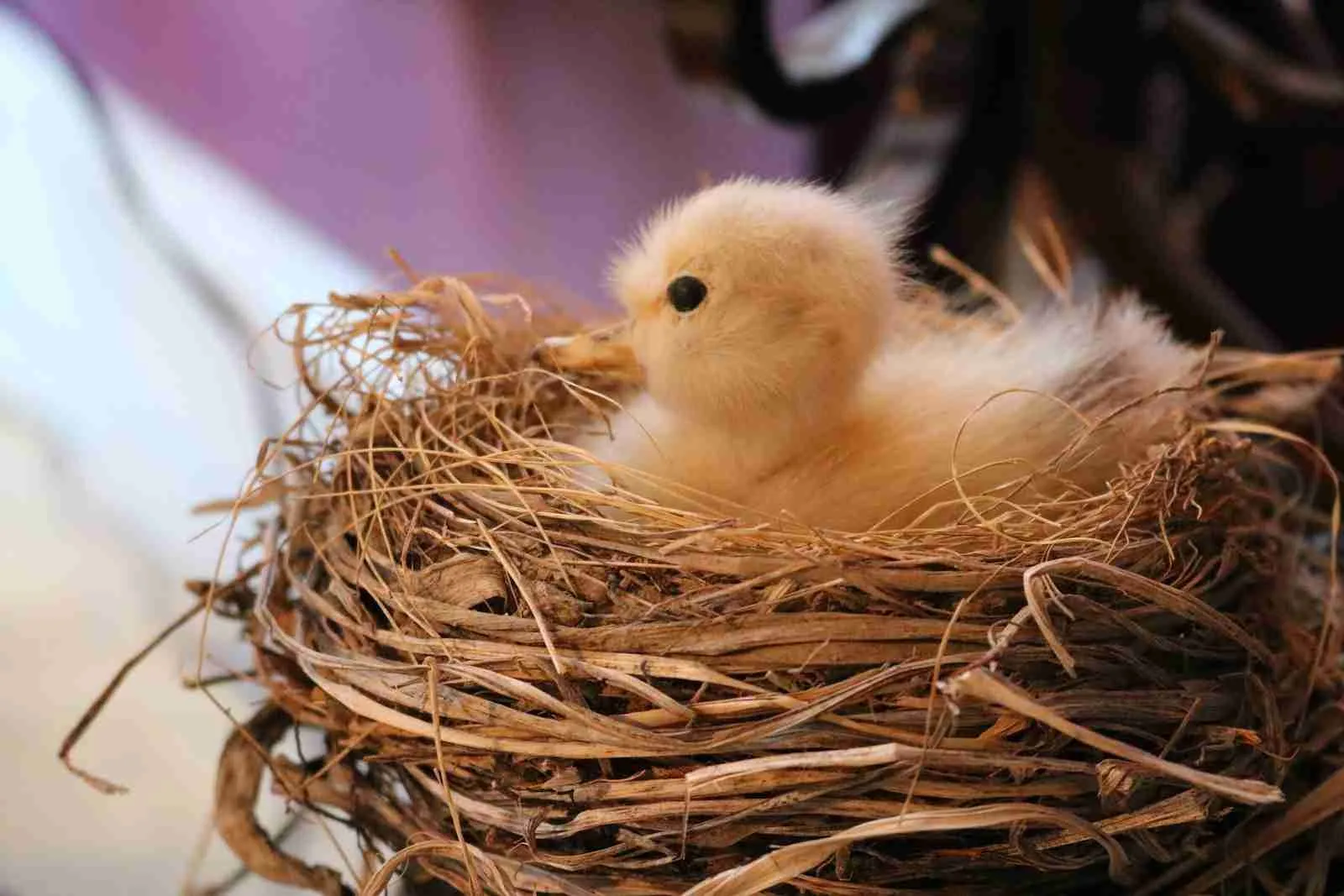As a duck owner, it’s only natural to worry about the health and well-being of your feathered friends. We all get attached to our pets and want them to live long, healthy lives.
However, there comes a time when we might start noticing signs that things aren’t quite right with our ducks – maybe they’re not as active or have lost their appetite. So how do you know if your beloved duck is dying?
In this article, we’ll discuss some common indicators that could signify your duck may be in poor health or nearing the end of its life. It’s important to keep an eye on these warning signs so you can take appropriate action, whether that means seeking veterinary care or making tough decisions about euthanasia for the sake of your pet’s comfort and dignity.
Recognizing Health-Related Red Flags
Just like the vigilant farmer keeping a watchful eye on their crops for any signs of disease or pests in order to ensure a healthy harvest, as a duck owner, it’s crucial that you pay close attention to your feathered friend for early signs of health issues.
Being proactive with disease prevention and fulfilling your duck’s dietary needs can go a long way in ensuring they live a happy, healthy life.
However, even with proper care, ducks may become ill and exhibit various symptoms which could indicate potential decline in health.
This makes recognizing these red flags essential to providing prompt medical intervention and care when necessary.
As we delve deeper into understanding our beloved waterfowl companions’ well-being, let us now explore some specific behavioral changes that might signal trouble is brewing beneath the surface.
Behavioral Changes To Look For
When trying to determine if your duck is dying, it’s essential to observe their behavior for any noticeable changes.
Unusual vocalizations or a sudden decrease in the sounds they usually make can be an indication that something is wrong.
Abnormal swimming patterns, such as struggling to stay upright or difficulty moving through the water, may also signal that your duck is unwell.
Additionally, pay attention to any marked changes in their appetite, energy levels, and social interactions with other ducks, as these can further indicate potential health issues.
After taking note of any behavioral changes, it’s crucial to assess physical symptoms as well to get a more comprehensive understanding of your duck’s condition.
Assessing Physical Symptoms
Assessing Physical Symptoms is a crucial step in understanding the health of your duck and ensuring its proper care. It’s essential to be aware of any unusual symptoms, such as lethargy, labored breathing, loss of appetite, or changes in appearance.
A dying duck may have pale gums or blue-tinted skin due to lack of oxygen circulation, and it might also suffer from weight loss or exhibit difficulty standing on its own. Monitoring these signs can help you determine if your duck needs immediate attention so that appropriate measures can be taken before it’s too late.
After evaluating your duck’s physical condition carefully, it becomes even more critical to seek veterinary advice for further evaluation and guidance on how to proceed with treatment options.
Seeking Veterinary Advice
After examining your duck for any physical symptoms, it’s crucial to seek professional guidance from a veterinarian.
Scheduling veterinary consultations is an essential step in understanding the severity of your duck’s condition and determining if emergency care is required.
A qualified vet can provide accurate diagnoses, recommend appropriate treatment options, or even suggest supportive measures to improve your duck’s quality of life.
As you move forward with this process, consider ways to ensure a comfortable end of life for your beloved pet as well.
Ensuring A Comfortable End Of Life
It’s truly heartbreaking to see our beloved pets nearing the end of their lives, but it is important that we provide them with comfortable environments and emotional support during this difficult time.
To ensure your duck has a peaceful passing, make sure they have a clean, warm space where they can rest without disturbance. Offer soft bedding and easy access to food and water so they don’t need to exert too much effort. Keep their environment calm by limiting loud noises or sudden movements around them.
Spend quality time with your duck, as your company may offer comfort in these final moments. By providing these loving conditions for your pet, you will not only honor their memory but also ease any pain they might be experiencing on their journey towards the end of life.
Frequently Asked Questions
Can Ducks Die From Loneliness Or Depression?
It’s not uncommon to wonder if ducks can die from loneliness or depression, as we know that duck emotions play a significant role in their overall well-being.
Companionship is of great importance for these social creatures, and they thrive when they have friends around them. While it may not be directly fatal, chronic stress caused by loneliness could lead to various health issues that might shorten a duck’s lifespan.
Depression in ducks can manifest in several ways, such as lethargy, loss of appetite, and reduced interaction with other animals or humans. To ensure the happiness and longevity of your duck, it’s crucial to provide them with the necessary companionship and care to keep them emotionally healthy.
How Long Does It Typically Take For A Sick Duck To Recover, If At All Possible?
The recovery timeline for a sick duck can vary greatly depending on the specific illness and the effectiveness of the treatment provided. With proper care, duck rehabilitation may take anywhere from a few days to several weeks or even months.
It’s important to consult with a veterinarian experienced in avian medicine to accurately diagnose and treat your duck’s condition, as well as monitor their progress throughout the recovery process.
Keep in mind that some illnesses may not be curable, but supportive care can help improve your duck’s quality of life during this time.
What Steps Can I Take To Prevent Illness In My Duck’s Environment?
To maintain a healthy environment for your ducks and prevent illness, it’s essential to focus on two key aspects: duck nutrition and sanitary housing.
Provide a well-balanced diet that meets their nutritional requirements, including proteins, vitamins, minerals, and other essential nutrients. This will help boost their immune system and keep them strong against potential diseases.
In addition to proper nutrition, ensure your ducks have clean and hygienic living conditions by regularly cleaning and disinfecting their housing areas. Remove any waste or stagnant water as these can harbor harmful bacteria and parasites.
Providing fresh water daily is also crucial in maintaining good health for your ducks.
By paying close attention to both duck nutrition and maintaining sanitary housing conditions, you can significantly reduce the likelihood of illnesses affecting your feathered friends.
Can Ducks Die Suddenly Without Showing Any Signs Of Illness Or Distress?
While it is relatively rare, ducks can die suddenly without showing any signs of illness or distress. Sudden duck deaths may occur due to a variety of factors such as underlying health issues, exposure to toxins, or even stress-related events.
In some cases, unexplained symptoms might be present but go unnoticed by the owner, while in other situations, these sudden deaths remain completely mysterious.
It’s essential for duck owners to closely monitor their pets’ behavior and overall health to quickly identify and address potential concerns. Regular veterinary check-ups are also crucial in maintaining your duck’s well-being and preventing unexpected fatalities.
Are There Any Specific Diseases Or Conditions That Are More Common In Certain Duck Breeds?
As the saying goes, ‘know your flock,’ and this is especially true when it comes to understanding duck breed vulnerabilities in relation to specific diseases or conditions.
Indeed, certain duck breeds are more prone to particular health issues. For instance, Pekin ducks can be susceptible to niacin deficiency, while Indian Runner ducks may experience leg problems due to their unique upright posture.
It’s essential to familiarize yourself with common disease symptoms for the type of duck you’re raising so that you can quickly identify any potential health concerns and promptly seek appropriate care for your feathered friend.
Conclusion
In a cruel twist of fate, we spend hours researching and worrying about our beloved ducks’ health only to find that sometimes they pass away without any sign or warning.
It’s almost ironic how the universe works, leaving us bewildered in these tragic moments.
So, while we may do everything within our power to ensure their well-being and happiness, it seems there are some things beyond our control.
Cherish the time you have with your feathered friend, for life is truly unpredictable.

An avid ornithologist, zoologist and biologist with an unwavering passion for birds and wild animals.
Dr. Wilson’s journey in ornithology began in childhood and led him to obtain a Ph.D. in Ornithology from the prestigious Avian Research Institute. He has worked closely with renowned experts in the field and conducted extensive research and field studies globally.


